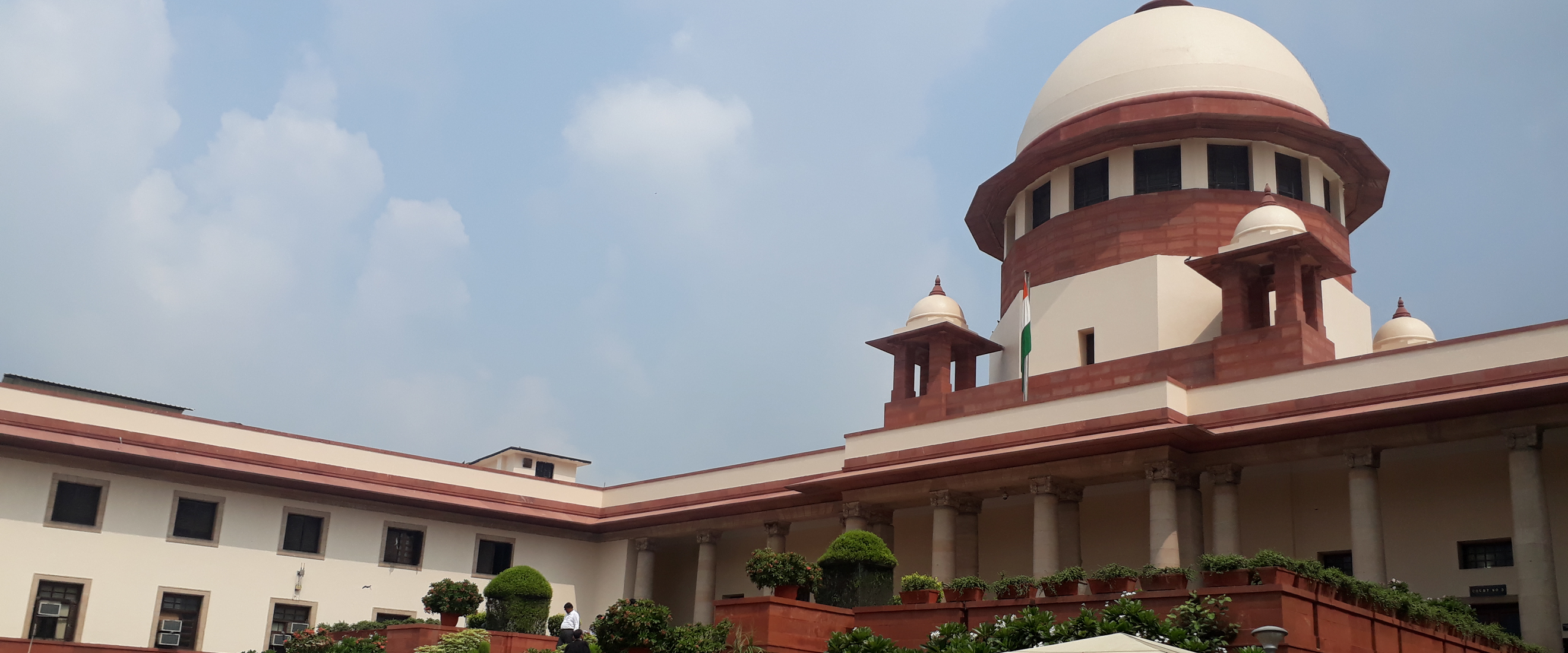Analysis
Key Precedents Challenge the Constitutionality of Anti-Conversion Laws
The Uttar Pradesh Prohibition of Unlawful Conversion Ordinance has been challenged before the Supreme Court.

On November 27th 2020, the Uttar Pradesh Governor promulgated the Uttar Pradesh Prohibition of Unlawful Conversion of Religion Ordinance, 2020 (‘Ordinance’). The Ordinance prohibits and criminalises religious conversion for marriage. Further, it mandates a person to file a declaration for conversion at least 60 days in advance. The Ordinance was immediately challenged before the Allahabad High Court as violative of an individual’s fundamental right to liberty, personal autonomy and freedom.
While the Allahabad High Court’s proceedings were in motion, the Ordinance was challenged before the Supreme Court. Citizens for Justice and Peace, a Mumbai based NGO, challenged the Ordinance alongside a similar two-year-old Uttarakhand law: Uttarakhand Freedom of Religion Act, 2018 (‘Act’). Citizens for Justice and Peace claims that the Ordinance and the Act impinges an individual’s right to freedom of choice, right to life and liberty, right to freedom of religion, and right to privacy.
The Supreme Court has issued notices to the Uttar Pradesh and Uttarakhand State Governments. And has posted to hear the matter in three weeks. However, the Bodbe CJI led three-judge bench refused to grant an interim stay to the Ordinance and the Act.
In this post we examine crucial Supreme Court precedents on the right to marry that will potentially shape the case. And trace the latest approach of several High Courts while adjudicating matters on inter-religious marriages.
The Supreme Court and the Right to Marry
Justice K. S. Puttaswamy v Union of India [2017] recognised the fundamental right to privacy under the Constitution of India, 1950. Justice Chandrachud’s majority opinion characterises the right to privacy as one that encompasses the right to make personal and intimate choices [page 263]. ‘…The sanctity of family life, marriage, procreation, the home and sexual orientation’ is well within the constitutionally protected right to privacy, he posits. This reading of the right to privacy laid the groundwork for the successful challenge to criminalisation of homosexuality in Navtej Johar v Union of India.
While Puttaswamy inferred the aspect of marriage within the fundamental right to privacy, Shafin Jahan v Ashokan K.M [2018] fleshes out a more direct and concrete right to marry a person of one’s own choice. The three-judge bench led by then Misra CJI recognised Hadiya Jahan’s fundamental right to faith and her freedom of choice. J. Chandrachud’s concurring opinion builds a concrete fundamental right to marry a person of one’s choice: he places this right at the core of the fundamental right to life, personal liberty and religious freedom. In paragraph 19 he notes:
The absolute right of an individual to choose a life partner is not in the least affected by matters of faith. The Constitution guarantees to each individual the right freely to practise, profess and propagate religion. Choices of faith and belief as indeed choices in matters of marriage lie within an area where individual autonomy is supreme.
These two recent precedents can be invoked to question the constitutionality of the Ordinance and the Act. Citizens for Justice and Peace, however, must prove that these anti-conversion laws in effect are only couched as laws to protect religious freedom. When in fact they categorically restrict the right to marry a person of one’s choice.
On the other hand, Uttar Pradesh and Uttarakhand can rely on Rev Stainislaus v State of Madhya Pradesh [1977]. This five-judge bench judgment had to decide on the constitutionality of the Madhya Pradesh Dharma Swatantraya Adhiniyam, 1968 and the Orissa Freedom of Religion Act, 1967. These anti-conversion laws were challenged on two grounds: First, the legislature did not have the competence to pass anti-conversion laws; Second, they violated the fundamental right to profess, propagate and practise one’s religion.
The Court upheld the impugned anti-conversion laws. And categorically held that the right to freedom of religion does not guarantee the right to conversion. The Court differentiated between the right to profess, practice and propagate from the right to convert. One can transmit or spread one’s religion but not convert another person. However, the impugned laws in this precedent did not explicitly ban conversion for marriage.
High Courts Keen on Upholding the Right to Marry
In the last couple of months, several High Courts adjudicated inter-religious marriage matters. In Salamat Ansari & Others Respondent v State of U.P. & Others [Nov. 2020] the Allahabad High Court referred to Shafin Jahan to affirm an individual’s right to marry a person of one’s own choice. The Court noted that it saw the couple beyond their religious identities. And emphasised the need for constitutional courts to guarantee an individual’s right to live with a person of his/her choice irrespective of religion.
In a similar Karnataka High Court judgment on November 27th 2020, the Court recognised the fundamental right of an individual who has attained majority to marry a person of their choice. Personal relationships between people cannot be limited or encroached upon due to caste or religion. More recently the Calcutta High Court in Palash Sarkar v The State of West Bengal [Dec. 2020] briefly noted that an individual who has attained majority has the right to marry a person of their own choice and convert to another religion.
The Supreme Court is slated to hear this matter in three weeks. The High Courts across the nation seem to rule in favour of an individual’s right to marry a person of one’s choice over the paternalistic impulse to regulate marriage. It remains to be seen if the Supreme Court will tread the same path.
